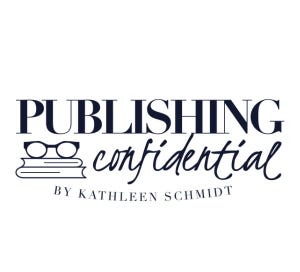I intended to wait to write about Authors Equity, the new publishing company founded by Penguin Random House’s former CEO, Madeline McIntosh, former CEO of Macmillan Don Weissberg, and Penguin Random House’s former President of Strategic Development, Nina von Moltke. Still, a few recent pieces about it warranted a more measured “take.”
The What:
Authors Equity is a new publishing venture that was recently launched. Its model is like that of Artists Equity (which no one has pointed out, surprisingly), founded by Ben Affleck and Matt Damon, among others. Instead of advances, Authors Equity will offer profit sharing to its authors: they will receive a percentage of the profits from sales of their books. Profit sharing has been around for a while in book publishing. It’s an excellent model to embrace when publishers don’t have as much capital to shell out for a big book advance.
An example is when an agent asks a high price for a project and tries to sell it to a mid-size publisher. The publisher may not have seven figures to shell out but can offer $250K plus a profit share in exchange for world rights. I am basing this on a book I worked on in 2015, which became a runaway bestseller…that no one expected (I did, but that is a story for another day!). The author and publisher were happy with the results. Of course, profit sharing works best for books that will make a profit, which is no easy feat. However, if we are talking about bestselling author Tim Ferris (“The 4-Hour Workweek”), we are also talking about a profitable author. Ferris and bestselling author James Clear (“Atomic Habits’) are investors in Authors Equity, who will also publish their books. It seems to have raised the ire of some of my peers that Authors Equity announced bestselling authors as investors and creators of the first books on the publishing company’s list. Perhaps we need to revisit the fact that publishing is a business. If you are starting a new publishing company and answer to investors, you must launch with big names.
Why It Will Work:
When discussing profits in the book industry, we must first examine each publisher’s backlist performance. The backlist funds the frontlist, allowing publishers to offer authors advances and pay their employees. Without a sturdy backlist, most publishers would go out of business. That is a fact that cannot be ignored. Authors Equity does not have a backlist yet, so they needed Tim Ferris and James Clear to show that this is happening; these authors believe in them, and so should you. It is that simple. Another factor in publishing that cannot be ignored is that big authors whose books sell well allow publishers to acquire non-brand name authors. It would be naïve to think it works any other way for the big five and larger indie publishers.
It is not a secret that book publishing math is puzzling. Author advances aren’t an exact science, so a model where profit sharing is favored is not a negative. It is a positive because some advances are so low today that they barely count as income. I see Author's Equity working in the long term because the company will not continuously shell out advances without getting much revenue in return. While unfavorable to some, this model is a step in the right direction for book publishing. Instead of books being on a mental leaderboard (“We paid $500K for this book, so it stays atop the list of books we need to pay attention to…”), they are treated equally. It is too early to tell what Authors Equity will look like one year from now, but I am willing to bet it looks pretty good.
Authors Equity and Gig Workers:
I’ve read a couple of pieces that highlighted the “issues” with Authors Equity hiring freelancers for editorial, marketing, and publicity for each of their books. This piece in Lithub wrongly points out how “bad” it would be for everyone in book publishing if Authors Equity kept its current model of assembling teams from a pool of freelancers. First, many of my peers and I do not consider ourselves gig workers. We have founded our own companies that provide services for authors and publishers. Some of us did it by choice because we were tired of how corporate publishing operated. Others did it because ageism is rampant in the industry, and the older you are, the harder it is to get hired. It is not easy to run a company. While it is true that it is easier if a partner/spouse has reliable health insurance, it is also true that it is not the responsibility of Authors Equity to create in-house jobs with great benefits. Their service is to authors, as it should be. By not having the overhead of staff, the company can take some risks that other publishers can’t. No one seems to want to write about that part. Instead, here we are, another day in publishing and another day where people complain but offer no realistic solutions. Perhaps that is the part of the industry that needs change the most.
QUICK END NOTE:
Remember to sign up for Book Publicity 101, which I will teach on April 10 from 1 to 2:30 p.m. You can register here.



